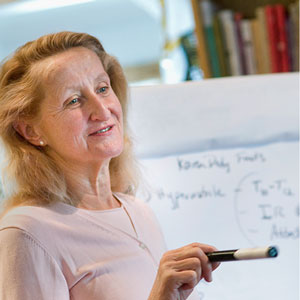Four-Year Program
 The Institute of Structural Medicine’s Structural Medicine Specialist Training Program is a four-year, 2,535-hour certification program, consisting of 44 three-day weekends. Some structural integration training may take place in the Seattle or Bellingham area. Between segments and practicum, students engage in Independent Study and document their findings in short essays.
The Institute of Structural Medicine’s Structural Medicine Specialist Training Program is a four-year, 2,535-hour certification program, consisting of 44 three-day weekends. Some structural integration training may take place in the Seattle or Bellingham area. Between segments and practicum, students engage in Independent Study and document their findings in short essays.
Students will be advised through the Independent Study process as needed. Independent Study allows students to develop their skills and understanding of the practice of Structural Medicine and to develop a future client base. Most students graduate with their professional structural integration practice already fully developed.
Comprehensive Training
Training in Structural Medicine includes courses in the sciences of anatomy, physiology, pathology, and embryology, as well as exercise and kinesiology. Training will also include the arts of movement education, and the fundamentals of dialogue, personal and interpersonal communication.
Years one through two-and-a-half focus on the essential structural integration series. Training also covers treatment strategies and integration methods appropriate for the patient, and basics of structural movement, body awareness and usage. After year 2.5 students will become Structural Integrators and be able to sit for their Massage Board License.
Years two-and-a-half through four teach how to adjust structural integration methods to meet the specific needs of clients suffering from pain due to musculoskeletal and neuromuscular disorders. Students learn to use myofascial length testing, orthopedic medicine principles, and structural analysis to create customized treatment plans, and deepen their learning of structural movement and voice dialogue communication fundamentals. After year four, students will also attain their license as a Structural Medicine Therapist.
Obtaining Accreditation
Upon completion of the four-year program with a minimum of 80 percent satisfactory grade, students may sit for several examinations: The National Certification Board for Therapeutic Massage & Bodywork (NCBTMB) exam, the Massage & Bodywork Licensing Examination (MBLEx) developed by the Federation of State Massage Therapy Boards (available in most states), or the International Association of Structural Integrators (IASI) exam. They may obtain their Washington State Licensed Massage Therapist (LMP) license, and are qualified to join professional organizations such as the International Association of Structural Integrators (IASI), Associated Bodywork & Massage Professionals (ABMP), or the American Massage Therapy Association (AMTA).
Optional Fifth Year
The Institute of Structural Medicine will offer an advanced fifth year option, open to students who have already completed the four-year SMSTM Training Program. Consisting of two 2-week segments supplemented by Independent Study, the fifth year teaches advanced levels of skilled practice, particularly relating to joints and neuromuscular function.
Business Education
The Institute of Structural Medicine provides business education in ethics, standards and practices, and business development, providing the basis for becoming a successful Structural Medicine Specialist.
Diploma
ISM awards the school diploma upon completion of the 2,535-hour SMS Training Program courses and required field experience.
